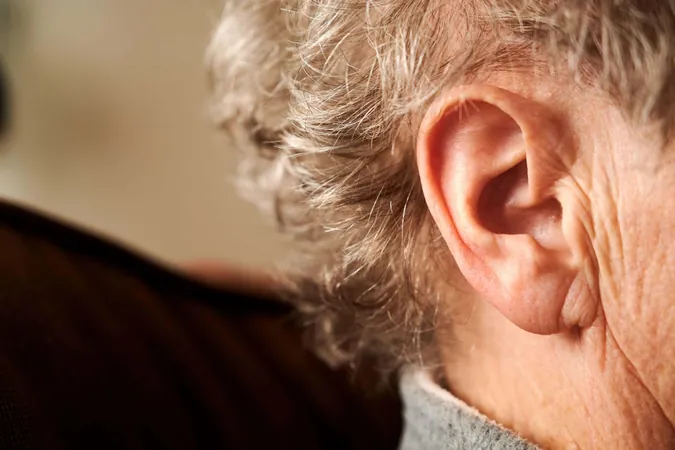
Shocking Connection Revealed: Poor Hearing Could Lead to Heart Failure!
2025-04-08
Author: Siti
Introduction
A groundbreaking new study has revealed that individuals with hearing impairment face a higher risk of developing heart failure, shedding light on an unexpected yet serious health connection. Researchers found that the psychological distress often associated with hearing loss plays a “notable” role in the development of heart problems.
Study Overview
The extensive research was conducted by experts in China, who analyzed data from the UK Biobank, encompassing 164,431 individuals who underwent tests to assess their hearing abilities. Out of these participants, a staggering majority, approximately 160,062, did not utilize hearing aids, providing a unique perspective on the effects of untreated hearing loss.
Research Methodology
Participants were categorized into three groups based on their performance in a digit triplet test (DTT), which evaluates hearing capability by presenting random digit combinations against background noise. Notably, all participants were heart failure-free at the onset of the study. However, during the more than 11-year follow-up period, about 4,449 individuals developed heart failure, a serious condition characterized by the heart's inability to effectively pump blood, resulting in symptoms such as fatigue, shortness of breath, and leg swelling.
Findings
In the UK alone, heart failure affects over one million people, highlighting the urgency of understanding its risk factors. The study revealed that those with a higher speech reception threshold (SRT) — meaning they required louder speech to comprehend dialogue — had a significantly increased risk of developing heart failure. The researchers stated that individuals with hearing impairments or those who rely on hearing aids exhibited higher heart failure risks compared to those with normal hearing.
Psychological Impact
Furthermore, participants with elevated SRT levels were also found to experience higher levels of psychological distress, social isolation, and neuroticism, particularly among those not using hearing aids. This suggests a concerning cycle where hearing loss not only impacts physical health but also mental well-being.
Conclusion
The team emphasized their pioneering findings: “We have been the first to demonstrate that poor hearing ability is significantly associated with a higher risk of incident heart failure in the general population,” they noted. They stressed the critical mediating effect of psychological factors, particularly distress, in this association.
Given these alarming insights, the researchers propose that hearing impairment could serve as a potential risk factor or indicator for future heart failure events. They advocate for the integration of hearing health assessments into broader evaluations of cardiovascular risks, emphasizing the necessity of taking a holistic approach to health care.
Moreover, enhancing psychological support for individuals experiencing hearing impairments may prove to be a vital strategy in mitigating the risk of heart problems. This compelling study underscores the importance of listening not only with our ears but also addressing the psychological impacts that hearing loss can engender. Stay tuned for further developments on this essential health topic!


 Brasil (PT)
Brasil (PT)
 Canada (EN)
Canada (EN)
 Chile (ES)
Chile (ES)
 Česko (CS)
Česko (CS)
 대한민국 (KO)
대한민국 (KO)
 España (ES)
España (ES)
 France (FR)
France (FR)
 Hong Kong (EN)
Hong Kong (EN)
 Italia (IT)
Italia (IT)
 日本 (JA)
日本 (JA)
 Magyarország (HU)
Magyarország (HU)
 Norge (NO)
Norge (NO)
 Polska (PL)
Polska (PL)
 Schweiz (DE)
Schweiz (DE)
 Singapore (EN)
Singapore (EN)
 Sverige (SV)
Sverige (SV)
 Suomi (FI)
Suomi (FI)
 Türkiye (TR)
Türkiye (TR)
 الإمارات العربية المتحدة (AR)
الإمارات العربية المتحدة (AR)